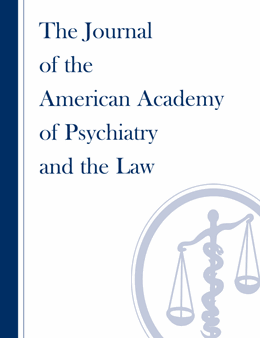Hi all,
I have several questions to address:
1. I enrolled in a formal post bacc program in NYC. If I get all As in the classes, I'll raise my 2.8 gpa to a 3.3 gpa. Should I take 6-8 more classes at Harvard Extension or UC Berkeley extension to raise my GPA to a 3.4? Would it be possible for me to get into a MD school with a 3.3 gpa after post bacc? Or should I raise it to a 3.4? On SDN calculator, it says the chances of getting to med school with a gpa above 3.4 is above 70% while under is only 50%... I expect to do well on the MCAT with targeted and optimized studying, I usually do well on standardized tests, I'm targeting 520+ on the MCAT.
2. I didn't do well in undergrad 5-10 years ago bc of myriad reasons (sexual assault, mental health issues, financial/family problems) but I feel I'm so much stronger now and am confident I will do well going forward. But I have been diagnosed with bipolar disorder, would that negatively impact my chances of being a cardiologist as in residency programs/med schools would view me in a negative light, so should I not disclose that information? I don't plan on disclosing to med schools before admission, but residency programs might ask...
3. Can anyone remark on the chances of my application? I plan to apply in 2025. I would really like to get into a MD school to be competitive for more prestigious cardiology fellowships in future... Goal is to be cardiologist at an academic institution in east coast such as Boston or NY.
ECs:
Top 10 private university, major in biology and chemistry
President/founder of global health volunteering club in college - 300 hrs
Wet lab research for half a year in cardiology stem cell research
Translational research in cardiology - co author of abstract, will be co author on upcoming publication, planning on being coauthor on at least 2-3 more pubs
Machine learning research in neurodegenerative disorders - hopefully will be coauthor on a publication in future
Clinical research - internship in GI, worked as research coordinator for 10 months
Worked as software engineer in healthcare/nonprofit sector
Hospital volunteer - 200 hrs, planning on going back to volunteering at hospital after pandemic restrictions lift
crisis line volunteer
Applied to volunteer as EMT/dispatcher on ambulance, haven't heard back yet
Shadowing cardiologists, surgeons - 160 hrs
How can I strengthen my application in the next 4 years so I'll be more competitive for MD schools?
Thank you!
I have several questions to address:
1. I enrolled in a formal post bacc program in NYC. If I get all As in the classes, I'll raise my 2.8 gpa to a 3.3 gpa. Should I take 6-8 more classes at Harvard Extension or UC Berkeley extension to raise my GPA to a 3.4? Would it be possible for me to get into a MD school with a 3.3 gpa after post bacc? Or should I raise it to a 3.4? On SDN calculator, it says the chances of getting to med school with a gpa above 3.4 is above 70% while under is only 50%... I expect to do well on the MCAT with targeted and optimized studying, I usually do well on standardized tests, I'm targeting 520+ on the MCAT.
2. I didn't do well in undergrad 5-10 years ago bc of myriad reasons (sexual assault, mental health issues, financial/family problems) but I feel I'm so much stronger now and am confident I will do well going forward. But I have been diagnosed with bipolar disorder, would that negatively impact my chances of being a cardiologist as in residency programs/med schools would view me in a negative light, so should I not disclose that information? I don't plan on disclosing to med schools before admission, but residency programs might ask...
3. Can anyone remark on the chances of my application? I plan to apply in 2025. I would really like to get into a MD school to be competitive for more prestigious cardiology fellowships in future... Goal is to be cardiologist at an academic institution in east coast such as Boston or NY.
ECs:
Top 10 private university, major in biology and chemistry
President/founder of global health volunteering club in college - 300 hrs
Wet lab research for half a year in cardiology stem cell research
Translational research in cardiology - co author of abstract, will be co author on upcoming publication, planning on being coauthor on at least 2-3 more pubs
Machine learning research in neurodegenerative disorders - hopefully will be coauthor on a publication in future
Clinical research - internship in GI, worked as research coordinator for 10 months
Worked as software engineer in healthcare/nonprofit sector
Hospital volunteer - 200 hrs, planning on going back to volunteering at hospital after pandemic restrictions lift
crisis line volunteer
Applied to volunteer as EMT/dispatcher on ambulance, haven't heard back yet
Shadowing cardiologists, surgeons - 160 hrs
How can I strengthen my application in the next 4 years so I'll be more competitive for MD schools?
Thank you!
Last edited:



